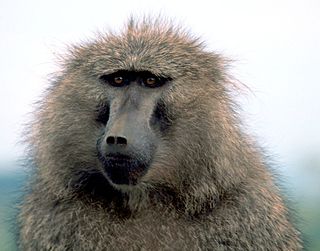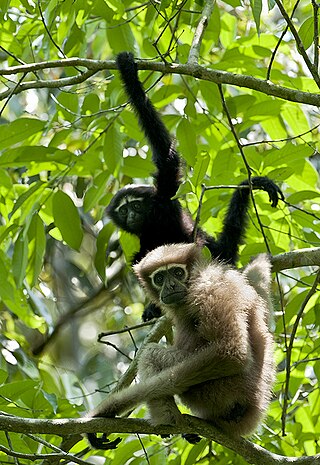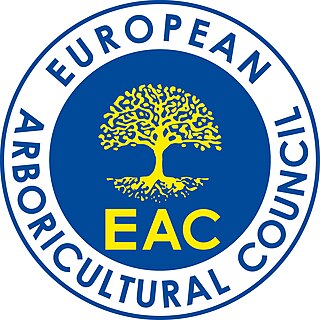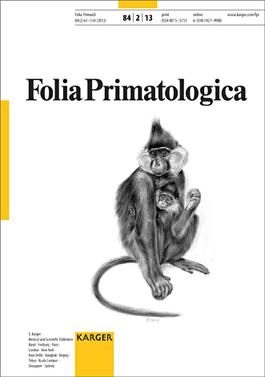
Primatology is the scientific study of primates. It is a diverse discipline at the boundary between mammalogy and anthropology, and researchers can be found in academic departments of anatomy, anthropology, biology, medicine, psychology, veterinary sciences and zoology, as well as in animal sanctuaries, biomedical research facilities, museums and zoos. Primatologists study both living and extinct primates in their natural habitats and in laboratories by conducting field studies and experiments in order to understand aspects of their evolution and behavior.
Carolus Philippus "Carel" van Schaik is a Dutch primatologist who since 2004 is professor and director of the Anthropological Institute and Museum at the University of Zürich, Switzerland.
John Russell Napier, MRCS, LRCP, D.Sc. was a British primatologist, paleoanthropologist, and physician, who is notable for his work with Homo habilis and OH 7, as well as on human and primate hands/feet. During his life he was widely considered a leading authority on primate taxonomy, but is perhaps most famous to the general public for his research on Bigfoot.
Linda Marie Fedigan, is a professor and Canada Research Chair in Primatology and Bioanthropology at the University of Calgary, Alberta. In addition, Fedigan is also the Executive Editor of the American Journal of Primatology and a fellow of the Royal Society of Canada. Prior to accepting her current position, Dr. Fedigan was a professor at the University of Alberta, teaching anthropology from 1974 until 2001. She is internationally recognized for over 30 years of contribution to the study of primate life history, reproduction, socioecology and conservation and is considered a major authority on the life history and reproductive patterns of female primates.
The Primate Research Institute, Kyoto University is a Japanese research center for the study of primates. It was founded in 1967 by primatologists Kinji Imanishi and Junichiro Itani. The institute works toward understanding the biological, behavioral and socioecological aspects of primates, and the origin and evolution of humans. The institute is located in the city of Inuyama, Aichi Prefecture, which is about 150 km east of the main campus of Kyoto University. Through the Division of Biological Sciences of the Graduate School of Science of Kyoto University, the institute offers graduate programs leading to the Master of Science and Doctorate of Science degrees in the field of primatological science. Since 2013, the director of the institute is botanist Hirohisa Hirai.
The European Federation for Medical Informatics (EFMI) is a non-profit organization, which was conceived at a meeting, assisted by the Regional Office for Europe of the World Health Organization (WHO), in Copenhagen,, in September 1976.

The Javan slow loris is a strepsirrhine primate and a species of slow loris native to the western and central portions of the island of Java, in Indonesia. Although originally described as a separate species, it was considered a subspecies of the Sunda slow loris (N. coucang) for many years, until reassessments of its morphology and genetics in the 2000s resulted in its promotion to full species status. It is most closely related to the Sunda slow loris and the Bengal slow loris (N. bengalensis). The species has two forms, based on hair length and, to a lesser extent, coloration.

The western hoolock gibbon is a primate from the gibbon family, Hylobatidae. The species is found in Assam, Mizoram, and Meghalaya in India, Bangladesh, and Myanmar west of the Chindwin River.

The European Arboricultural Council (EAC) based in Bad Honnef, Germany is a forum where delegates from a wide range of arboricultural organizations throughout Europe meet. The goal of the EAC is to elevate the status and to raise the professional level of competence within arboriculture. This objective is carried out by liaising on matters ranging from research and education to successful tree establishment and the improvement of safe working practices.
The International Primatological Society (IPS) is a scientific, educational, and charitable organization focused on non-human primates. It encourages scientific research in all areas of study, facilitates international cooperation among researchers, and promotes primate conservation.
The European Federation of Periodontology (EFP) is a non-profit organisation dedicated to promoting awareness of periodontal science – the science and clinical practice of periodontics and implant dentistry – and the importance of gum health. Its guiding vision is “Periodontal health for a better life.”

Toshisada Nishida was a Japanese primatologist who established one of the first long term chimpanzee field research sites. He was the first to discover that chimpanzees, instead of forming nuclear family-like arrangements, live a communal life with territorial boundaries. His discoveries of the medicinal use of plants by wild chimpanzees helped form the basis of the field of zoopharmacognosy.
The Federation of European Pharmacological Societies (EPHAR) is a non-profit voluntary association established to advance research and education in the science of pharmacology and to promote co-operation between national/regional pharmacological societies in Europe and surrounding countries. It is an umbrella organization of currently 29 national societies for pharmacology and represents over 12,000 individual pharmacologists in Europe. Moreover it seeks to co-operate with other international organizations, especially the International Union of Basic and Clinical Pharmacology (IUPHAR) of which EPHAR is an associate member.

Folia Primatologica is an international peer-reviewed journal focusing on primatology, the study of monkeys, apes, lemurs, and other primates. Folia Primatologica was founded in 1963 by Adolph Hans Schultz, Helmut Hofer, Josef Biegert, and Dietrich Starck. Its start was preceded by two series of primatological monographs, both edited by the aforementioned founders, Primatologia , published in 1956, and Bibliotheca Primatologica, published in 1962.
Michael J. Owren was a Norwegian born American psychologist who contributed to the understanding of animal communication, the evolution of language, emotional communication, and vocal acoustics. His work focused on vocal phenomena in animals and humans. He pioneered digital spectral analysis techniques, first developed in speech science, for use in studies of animal communication. He studied primate vocalizations in terms of acoustics and communicative functions.
Jonah Ratsimbazafy is a Malagasy primatologist. In 2020, he was appointed President of the International Primatological Society.

Karen B. Strier is a primatologist. She is a Vilas Research Professor and Irven DeVore professor of Anthropology at the University of Wisconsin–Madison, and co-editor of Annual Review of Anthropology. The main subject of her research is the Northern Muriqui, a type of spider monkey found in Brazil.

Berthe Rakotosamimanana was a primatologist and palaeontologist from Madagascar.

Cláudia Maria Azenha Margato de Ramalho Sousa was a primatologist. She was the first Portuguese to work in the field with chimpanzees. Sousa discovered that chimpanzees would exchange tokens for food
Lynne A. Isbell is an American ethologist and primatologist, professor of anthropology at the University of California, Davis.









